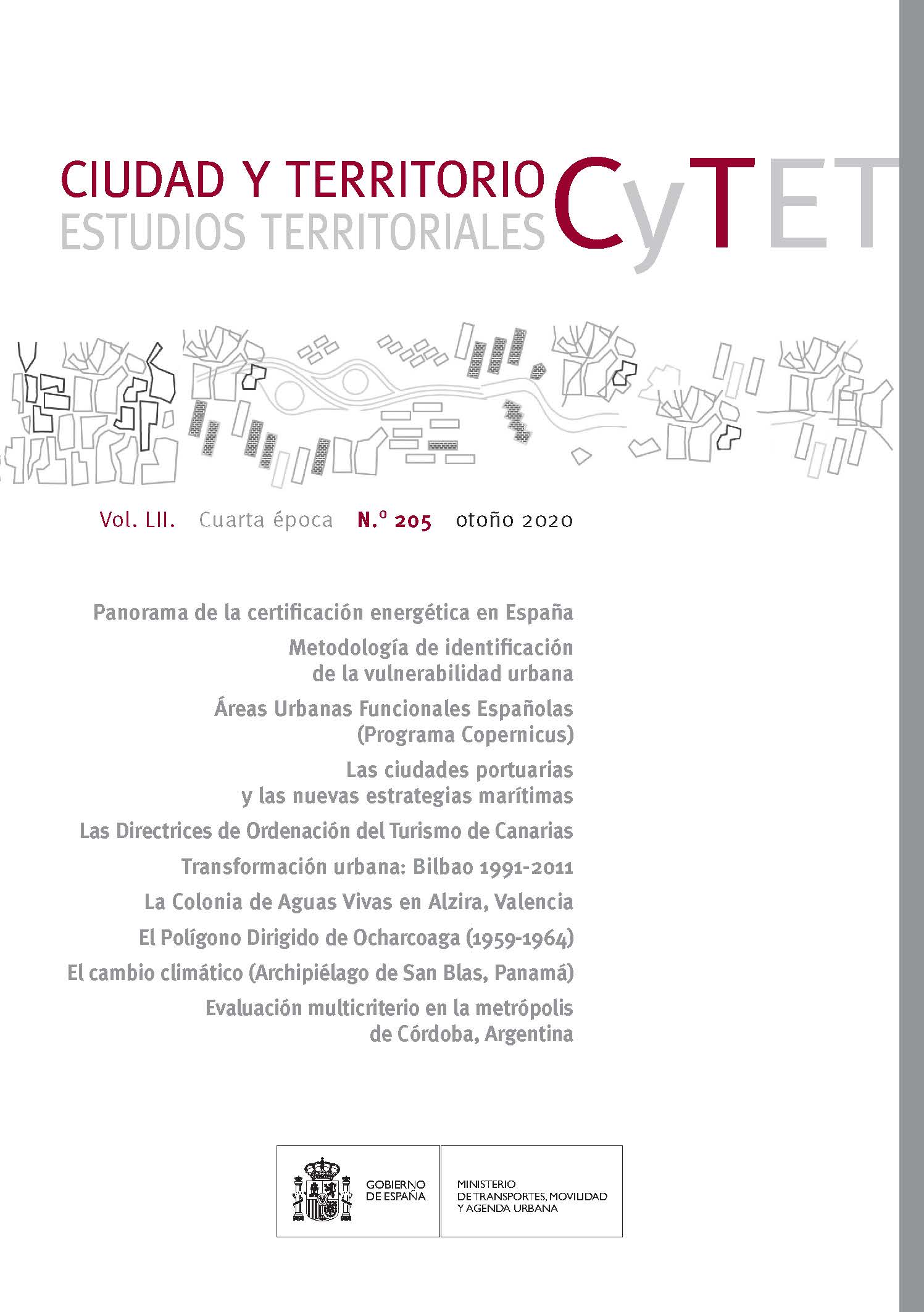In a 15-minute setting: towards the City of Proximity, and its relationship with the Covid-19 and the Climate Crisis, the case of Malaga
DOI:
https://doi.org/10.37230/CyTET.2020.205.13.3Keywords:
Classic Mediterranean City; Density; Complexity; Proximity; Covid-19; Climate Crisis; Urban Agenda; IndicatorsAbstract
It is not a new idea, in fact the proximity city recovers the configuration of the dense classic Mediterranean cities, of mixed uses and with a proximity to the pedestrian scale of the main services that are usually done. Its attributes had already been included in the old Agenda 21 of 2005 and in the current Urban Agenda of 2015, but with the situations derived from the Covid-19 pandemic, new opportunities open up to promote the city of proximity, reconvert public spaces previously destined to the private vehicle and at the same time to intensify the actions against the climate crisis that are complementary in the objective of achieving a healthier and friendlier city.
Downloads
Published
How to Cite
Issue
Section
License
Copyright (c) 2020 Pedro Marín-Cots, Macarena Palomares-Pastor

This work is licensed under a Creative Commons Attribution-NonCommercial 4.0 International License.
Considering the provisions of the current legislation on Intellectual Property, and in accordance with them, all authors publishing in CyTET give -in a non-exclusive way and without time limit- to the Ministry of Transport, Mobility and Urban Agenda the rights to disseminate, reproduce, communicate and distribute in any current or future format, on paper or electronic, the original or derived version of their work under a Creative Commons Attribution-NonCommercial-NoDerivative 4.0 license International (CC BY-NC-ND 4.0), as well as to include or assign to third parties the inclusion of its content in national and international indexes, repositories and databases, with reference and recognition in any case of its authorship.
In addition, when sending the work, the author(s) declares that it is an original work in which the sources that have been used are recognized, committing to respect the scientific evidence, to no longer modify the original data and to verify or refute its hypothesis. Author(s) also declare that the essential content of the work has not been previously published nor will it be published in any other publication while it is under evaluation by CyTET; and that it has not been simultaneously sent to another journal.
Authors must sign a Transfer of Rights Form, which will be sent to them from the CyTET Secretariat once the article is accepted for publication.
With the aim of promoting the dissemination of knowledge, CyTET joins the Open Journal Access (OA) movement and delivers all of its content to various national and international indexes, repositories and databases under this protocol; therefore, the submission of a work to be published in the journal presupposes the explicit acceptance by the author of this distribution method.
Authors are encouraged to reproduce and host their work published in CyTET in institutional repositories, web pages, etc. with the intention of contributing to the improvement of the transfer of knowledge and the citation of said works.








 Enlace a CyTET en Linkedin
Enlace a CyTET en Linkedin